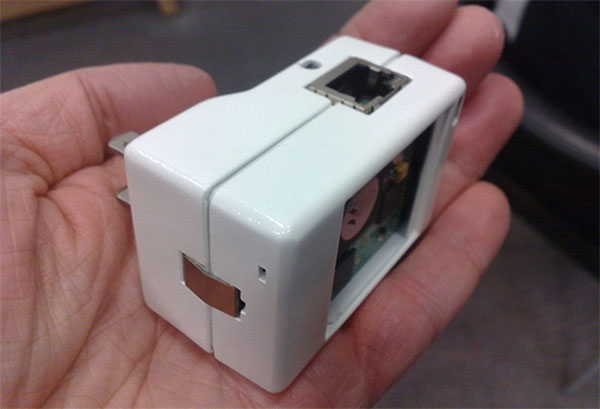One of the great advances in mobile technology is the ability for the average consumer to have mobile devices that are connected to the internet. This allows access to information in real time and in real life circumstances is an important tool in our daily lives. This is especially important to fully harness the commercial potential of mobile applications. One of the primary ways that mobile application developers fully integrate wireless devices with the internet is through Java.

One of the great advances in mobile technology is the ability for the average consumer to have mobile devices that are connected to the internet. This allows access to information in real time and in real life circumstances is an important tool in our daily lives. This is especially important to fully harness the commercial potential of mobile applications. One of the primary ways that mobile application developers fully integrate wireless devices with the internet is through Java.
Java as a Platform
Today, wireless devices process vast amounts of data from internet databases. Java is the ideal platform for utilizing the data processing power from mobile applications. Java is the ideal platform for developing complex mobile applications due to its ability to be deployed on both wireless devices and on application servers. Java is also independent of host hardware and host operating systems, allowing for more complex applications and smoother operation.
Java Vs. Mobile Java
Java applications on computer operation systems are too slow and too big for mobile devices. As mobile devices are resource strained because of their size and hardware limitations, Java just for mobile applications has been developed. This solved the need that mobile devices have for a small runtime memory footprint and a faster execution speed. Faster execution speed is especially essential for mobile communication development as well as productivity while on the go.
Unlike applications that are browser based and built around Wireless Markup Language and other HTML variants, Java applications for mobile devices are good, flexible programs that can handle both user interfaces and manipulation of data. In particular, this allows for better user interaction. In contrast to applications that are constrained by their respective platform, mobile Java applications are portable across all mobile platforms and can be deployed over the internet.
This is vital for the mobile communications developer as it allows them to use their mobile application across a wide range of products such as mobile phones, tablets and pocket PCs. The marketplace is crowded with mobile devices, and the mobile application developer needs the flexibility and responsiveness to address shifting demand and attention.
Java ME
Although there are a wide range of old existing mobile applications, Java ME remains the dominant mobile application development platform. Since Java is not specific to one platform, it uses an execution engine and a compiler with a set of libraries that are implemented for various hardware setups and operating systems. This enables Java applications to run identically on all of them.
Because of the diversity of mobile devices, unified standards have been put in place that allows Java to run on mobile devices from different manufacturers. These standards have followed the evolution of mobile devices, from the first standards where there were small screen sizes, no audio access, and a 32 kB program limit to the newer standards that allow audio and have a maximum 64 kB program size.
Mobile applications and mobile development are essential to the changing face of technological needs in commerce. Having the flexibility to address these changes has allowed Java to become the go to platform for mobile application development. Even as HTML5 has increased in mobile development, Java is still a standard used in many mobile applications and will continue to be utilized.
Susan Shelley writes for tech blogs where you can find out more about the Zintro consultant directory.
Using JAVA for Mobile Applications,




Lewis Frost
Oct 26. 2012
It is a good platform for developing complex mobile applications because Java can be deployed on both wireless devices and application servers.
TechCrates
Oct 28. 2012
Thanks for your comment Lewis. Java has its place between all development platforms especially from educational and universal point of view
Ashok
Oct 29. 2012
This is very nice & useful info for understanding mobile applications, thanks to sharing nice info.
TechCrates
Oct 30. 2012
Thanks Ashok for stopping by and commenting
Software Development Services
Oct 31. 2012
If I’m not mistaken then, all the Android application development and iOS application development is also based on JAVA. So how does JAVA for mobile and Android and iOS differ with each other since their core programming syntax is derived from JAVA itself.
Isn’t it?
Kirk Adkins
Jan 03. 2013
This is especially important to fully harness the commercial potential of mobile applications.
JavaOne 2013 India returns...!!
Mar 15. 2013
Java lovers’ gona love it, Check it out…. JavaOne 2013 is apparently being held at Hyderabad this year as well (8-9 May) at the same place guys…. They have also started accepting registrations
gaurav
Sep 13. 2013
very nice explanation about java technology…..good work 🙂
keep it up.
wasim
Dec 14. 2013
nice explanation about all java’s flavors. now a days android and many big os are dependent on java for development.
Thanks..
Subham
Feb 17. 2014
very good informative post about java programming language . Java 8 is due in 2 months. Hope java interview questions will be changed dramatically after the release of the 8th version of java .
Baskar
Feb 26. 2014
Hi Khezia,
This is very informative and useful information about Java Mobile application. Actually If you give more about Java Mobile application, It will be helpful for beginners like me to understand .
Thanks and keep going.
charu
Jun 16. 2014
is java mobile very different from java computer…..